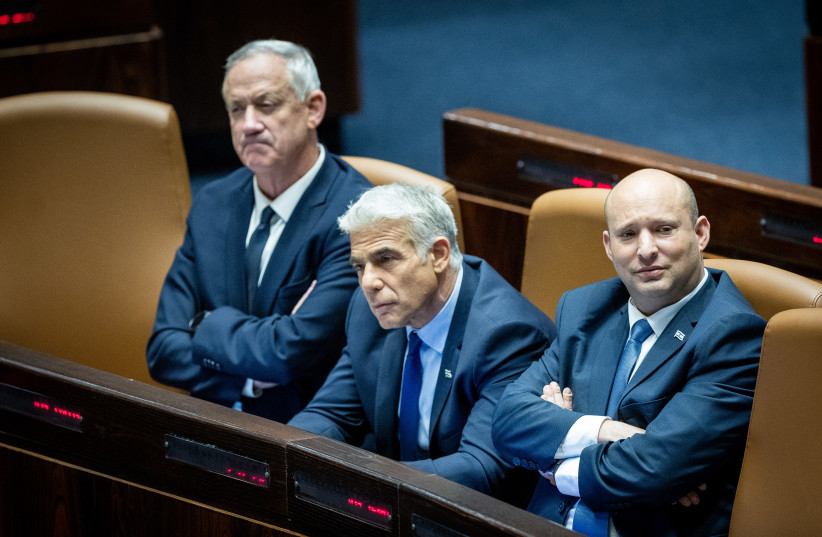In the early months of Naftali Bennett’s premiership last year, he had certain lines he liked to repeat, especially to all of the foreign leaders he encountered, who were excited to meet not-Bibi.
Bennett would tell them his government had found the antidote to divisive politics, that he became friends with ministers such as Labor leader Merav Michaeli, who he had once denigrated, and he deeply admires Mansour Abbas, leader of the Islamist Ra’am (United Arab List) Party, despite coming from the hard Right.
For example, in his speech to the UN in September, he compared COVID-19 and the “plague of polarization” and said his government, which brought together the Right and Left, Jews and Arabs, was the solution.
Read more on the dissolution of the Knesset and the upcoming elections:
“What started as a political accident, can now turn into a purpose,” Bennett said. “And that purpose is unity. Today we sit together, around one table. We speak to each other with respect, we act with decency, and we carry a message: Things can be different.”
Foreign leaders from around the world wanted to talk about his coalition, Bennett asserted in an interview with The Jerusalem Post in January.

“Israel is a light unto the nations by having such a diverse coalition, with Left and Right working together harmoniously,” he said.
Bennett returned to that well on Monday night in his speech explaining the reason he was dispersing the Knesset.
“We proved that we can set aside disputes for the country,” he said. “Like in reserve duty or in the workplace – people with different opinions that work towards a greater goal.”
That may be the case in the IDF and in a lot of offices, but the fact that Bennett was making the remarks in a speech essentially announcing he will be the shortest-serving prime minister in Israel’s history (except for Yigal Allon, who was interim prime minister for several weeks) carries a different message than what he claimed.
Did all the parties in the coalition talk the unity talk? Sure. Did they walk the walk? Not quite.
Hardly a week went by in the last year when there wasn’t a dispute over an issue of major ideological significance. For example, the squabbling in the coalition started and ended with settlement issues.
In June 2021, there was the compromise involving legalizing the Evyatar outpost, which enraged Meretz MKs. In June 2022, segments of the Left and Ra’am would not vote in favor of the Judea and Samaria regulations, which allowed the government to have jurisdiction over Israeli citizens in areas not under Israeli sovereignty.
The coalition can point fingers at opposition leader Binyamin Netanyahu and his right-wing bloc all they want – and there certainly is something deeply hypocritical about the supposedly staunchest supporters of Judea and Samaria refusing to lend a vote to keep them under control – but it is Bennett’s own coalition’s inability to “set aside disputes for the country” that nearly caused “security dangers and constitutional chaos,” as he put it in the same speech.
There is also something to be said for the fact that Bennett’s coalition represented just half of Israel’s population, and when you factor in the polls that showed Yamina and New Hope voters abandoning ship consistently from the start of this government’s year in office, then it’s probably less than half.
However you do the math, Likud and the other parties in the Netanyahu bloc still represent a sizable chunk of Israeli voters, and for all of Bennett’s talk about solving polarization, his government did nothing to reduce the fury on the Right.
Nor did Netanyahu, of course. He fed the flames at every turn, but Netanyahu wasn’t out there claiming he was uniting the people of Israel.
The real political polarization in Israel of late is not just Right and Left ideological issues, it’s yes-Bibi or no-Bibi. That debate is often the ugliest, whether it’s between opposite sides of the political spectrum or intra-Right arguing.
If the last four elections in the past three and a half years were ugly and divisive, it’s hard to see how this government will have made the fifth one any less so.
